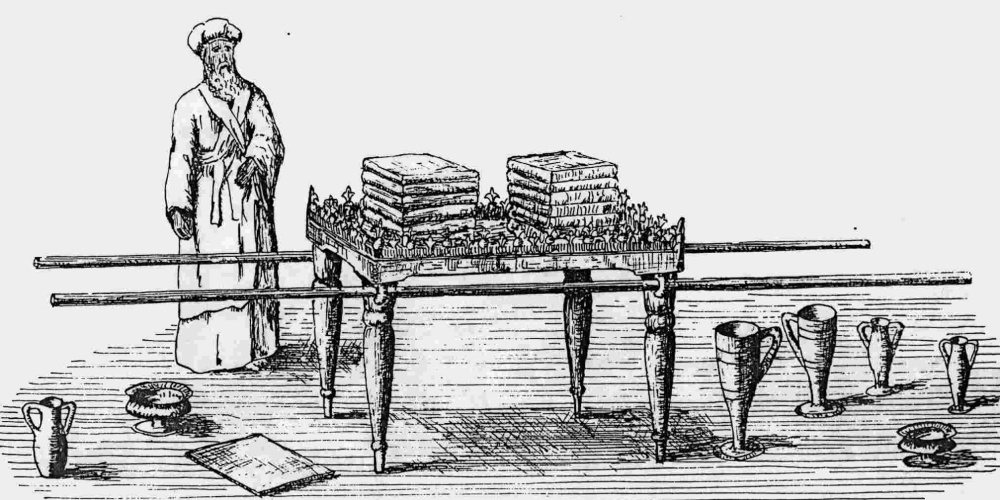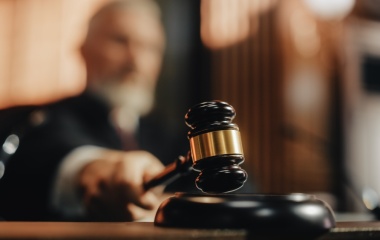
In unsuccessfully[1] trying to appease him, Rav Ami and Rav Asi warned of the danger of anger by recounting how Rav Elazar and Rav Yossi were once arguing about the laws of muktza and, due to their anger, a sefer Torah was ripped[2]. They would not be the first or the last to cause great misfortune due to anger[3]. That great people can make mistakes is no surprise, and I often marvel at the openness of our Sages to admit such--and even search for errors where such are less than obvious. Those who can admit mistakes are much less likely to make them.
Yet just a few pages later, the Gemara seems to contradict this view, asserting Divine protection from mistakes for the righteous.
Terumah may be eaten only by a kohen or a member of his household, including any slaves he may have. It was common practice to distribute terumah at the granary, and it is this convention that is the source of the following debate between Rav Yehudah and Rav Yossi.
Rav Yehuda maintains that "one may not distribute terumah to a slave unless his master is with him," whereas Rav Yossi allows such (Yevamot 99b). The Gemara explains that Rav Yehuda was afraid that if terumah was given to the slave of a kohen, one might mistakenly think the slave himself is a kohen, leading to confusion in the area of personal status. After all, if he eats terumah, he must be a kohen! Rav Yossi disagreed. Much like the standards of evidence needed to obtain a criminal conviction are different than those needed to win a civil suit (O.J. Simpson, anyone?), so, too, are there differing standards that apply when determining personal status issues as opposed to allowing terumah to be eaten. Allowing the latter says little about the former.
Commenting on this dispute, Rav Elazar bar Tzadok said that the one time he gave testimony, it was regarding one who ate terumah; and because of his testimony, they mistakenly identified a slave as a kohen.
To this error, the Gemara asks, "Behold, the animals of the righteous, G-d does not bring a misfortune through them; the righteous themselves, how much more so?" (Yevamot 99b). The Gemara answers that they wanted to declare the slave a kohen, but in actual fact they caught their error in time. In the end of the day, Rav Elazar's testimony did not cause a mistake, even an unwitting one.
In a remarkable assertion, and to the best of my knowledge without any evidence, the Tosafists claim that this question and answer are not applicable here, and should be stricken from our text. And in four different places (see, for example, Hulin 5b, s.v. Tzadikim), Tosafot enumerate various cases--including the ripping of the Torah as discussed above--where harm did come about through the actions of the righteous themselves, let alone their animals. They range from Yehuda ben Tabbai mistakenly putting a (false) witness to death (Makkot 5b), Rabbi Yishmael accidentally violating the laws of Shabbat (Shabbat 12b), and Rav Yirmiya eating before Havdalah (Pesachim 106b).
Rather, the Tosafists explain that heavenly protection of the righteous from sin is limited to the eating of non-kosher food. This follows from the context of this teaching, which is based on the refusal of the donkey of Pinchas ben Yair[4] to eat demai, food from which it is questionable whether tithes have been taken. Tosafot adds a rather cryptic explanation that "it is unbecoming for a righteous person to eat something forbidden". While kashrut is less important than Shabbat, not to mention causing the death of a witness, perhaps it is because "we are what we eat" that makes mistakes in this area more worthy of Divine protection.
Righteous or not, we all make mistakes. That is a given. What matters is how we react to such and how we grow from them.
[1] It is most rare that telling someone not to do wrong because such is not a good idea will have any impact. Rav Yochanan was only appeased when Rav Yakov bar Idi explained that in truth, Rav Elazar had not done anything wrong.
[2] One can deduce from here that, at least in the period of early Amoraim soon after the writing of the Mishnah, it was still common to study Torah from an actual Torah scroll.
[3] I recall Rabbi Norman Lamm recounting a fierce debate regarding a kashrut issue. When they asked Rav Chaim of Volozhin to express his view, he responded by noting that the debate revolved around an issue of rabbinic law, whereas causing machloket, strife, is a violation of Biblical law and sensing that his view would not bring peace, he declined to get involved in the dispute.
[4] While the assertion of Divine protection is a generic statement presumably applicable to all the righteous, one would be well served to keep in mind that Pinchas ben Yair was the most pious of the pious. It is his teaching (end of Mishnah Sota) that serves as the basis for the Mesillat Yesharim, the classic book of mussar, one that sets a very high bar for religious observance.



